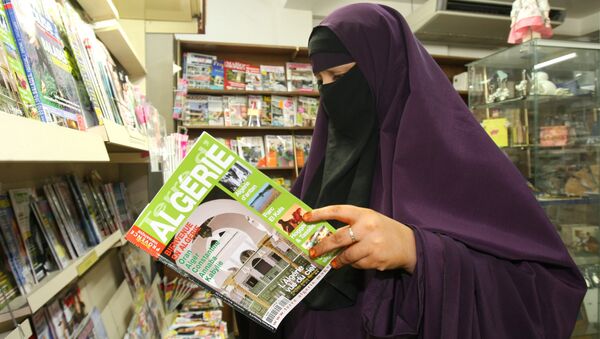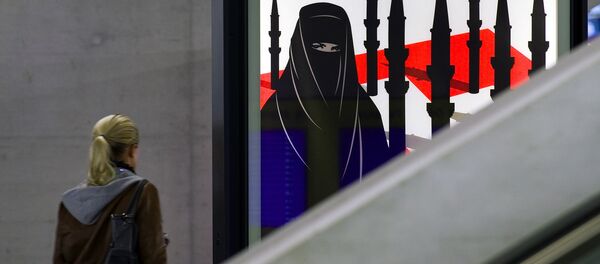A French social worker, Christiane Ebrahimian, lost her job at a psychiatric department of a hospital in Nanterre in 2000, because patients complained about her refusal to remove her Muslim veil.
Judgment Ebrahimian v. France — non-renewal of contract of a social assistant refusing to https://t.co/ERyEq24SPC #ECHR
— ECHR Press (@ECHR_Press) November 27, 2015
This was before France banned the wearing of 'conspicuous religious symbols' in 2004, including the Muslim face veil, known as the niqab, which covers the head and face, leaving the area around the eyes visible.
Germany and France have the largest Muslim populations among EU member countries https://t.co/xS5uSYdBIB pic.twitter.com/fc3hMHLnUN
— Pew Research Center (@pewresearch) November 16, 2015
However, Ebrahimian challenged the decision. She lost her legal battle in France's Administrative Court in 2002, and now, at the highest court of appeal in Europe.
There is an estimated five million Muslims living in France. French officials insist that the number of women who do want to wear a religious veil in public is a small fraction of this, and so few are affected by the ban.
The court's decision this week is perhaps unsurprising, considering it also upheld France's 2010 ban on anyone covering their face in public.
Whilst the legislation covers hoods and balaclavas, it was widely seen as targeting the burka, the most concealing of Muslim religious coverings for women, hiding the entire face and body, leaving just a mesh screen to see through.
The European judges decided that the French authorities' goal of preserving a social idea of "living together" was a "legitimate aim."
Many French people believe such coverings of a woman's identity are an affront to the ideals of French secularism.
Whilst pressing for the ban in 2009, former President Nicolas Sarkozy said:
"I want to say solemnly, the burka is not welcome in France. In our country, we can't accept women prisoners behind a screen, cut off from all social life, deprived of all identity. That's not our idea of freedom."
However, some Muslim women say that the ban infringes on their right to practice their religion, and restricts their right to choose.
Despite this, similar legislation is now spreading around Europe. Belgium banned the burka in 2011 and this week, so did the Ticino region in Switzerland. Women there now face severe fines of up to US$9,800 (€9,200) for wearing the veil in public.



